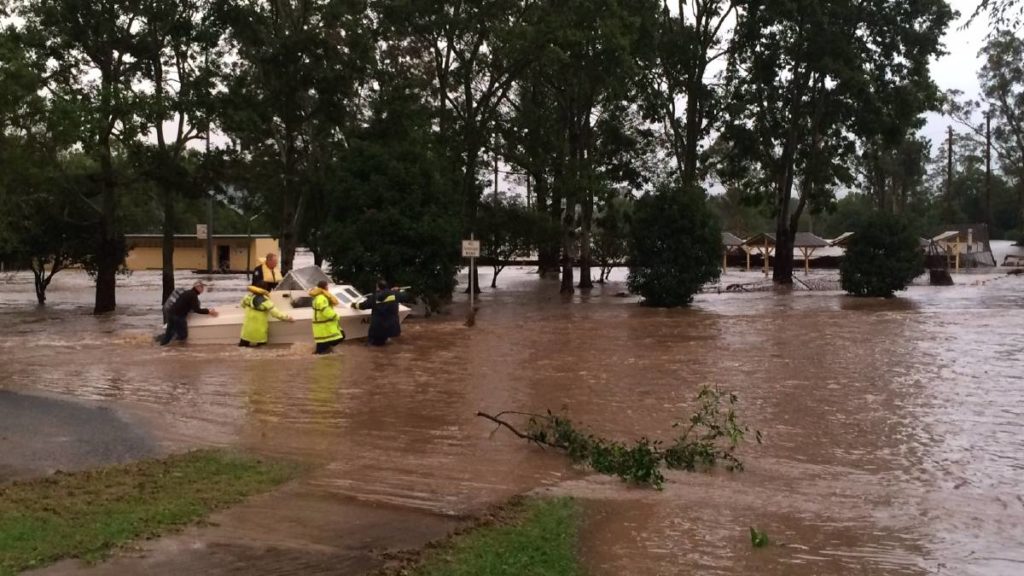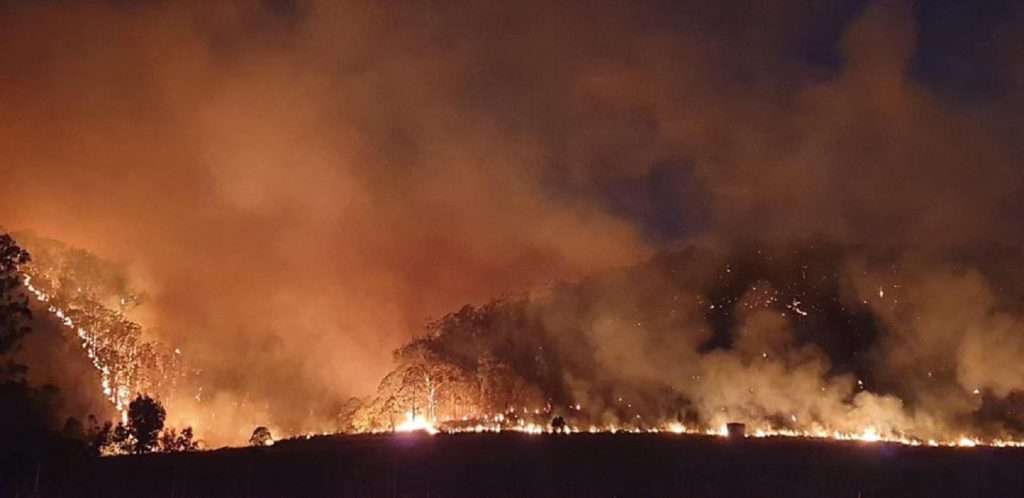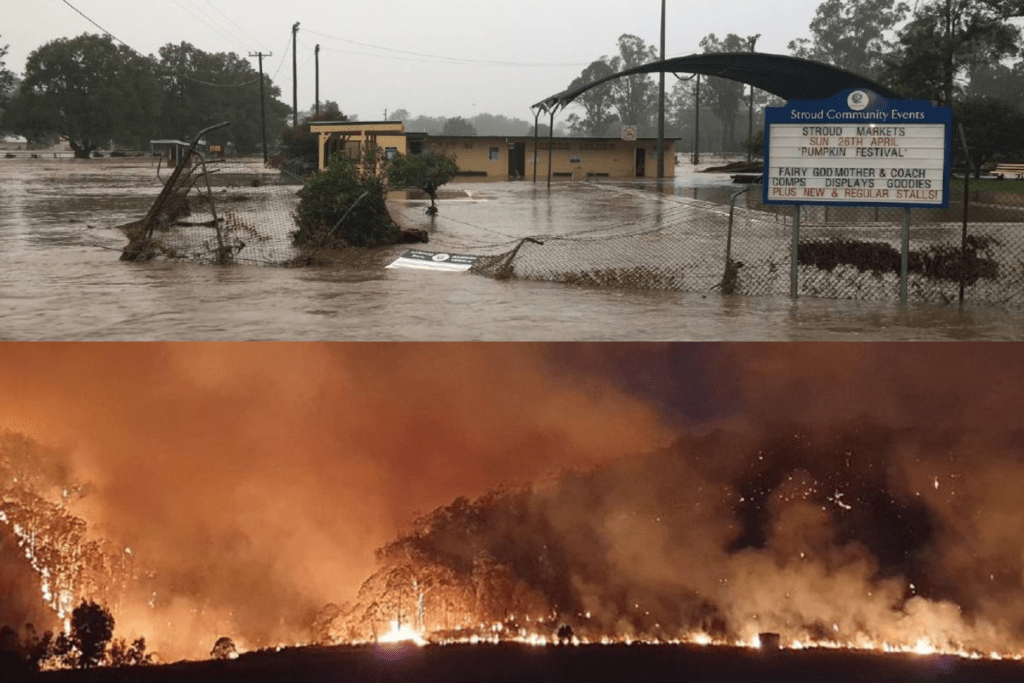Tara Tolhurst, is a young northern NSW university student who experienced three disasters in her teenage years – drought, floods and bushfires. Here, she shares her harrowing experiences of these disasters, and why she’s calling on the government to implement urgent climate action.
When I was 14, my northern NSW high school and the surrounding town became a disaster zone.
Flood waters had washed away entire houses, and Dungog was a mess.
It was scary getting text messages from friends who lived there, saying things like “There’s water coming up in my backyard to my door!”, “I can’t do anything” and “It’s happened so quickly”.
I remember feeling a sense of helplessness. The town was cut off so I couldn’t go and help my friends, or even go to school for a week. Back then, in 2015, there was no online schooling.

It was eerie when we finally were allowed back. My school had sustained water damage, and rubbish and household belongings were strewn around the streets.
We were all in shock.
But it was to be just the first of a string of disasters I would experience in my teenage years. Next, of course, came the drought. It wasn’t like a flood or a bushfire. It crept up on us slowly. It started to affect a couple of people, then a few more… and then suddenly you find yourself in Level 4 water restrictions in your town, collecting water from the shower in a bucket.
When we started doing drought fundraisers at school like Thought for a Farmer in 2018, I really started getting concerned.
The river stopped flowing and we had to get water trucked in – and we weren’t even the worst affected.
The idea that we could run out of water made me feel like we were living in a dystopian world.
Earlier this year I could sit in the middle of what was our river, as it had virtually dried up.
Luckily the drought finally broke for us.
But even when it rains now, I pray: “Thank you for the rain, please bring more”.
I live with a niggling fear in the back of my mind – when will we go back into drought again?
When the Black Summer fires nipped at the heels of my town Stroud, I started to think differently about disasters.

And I’ve been reflecting on how far the ripple effects can spread after taking part in a major youth report on climate change and disaster led by World Vision and the Australian Institute Disaster Resilience.
I was eager to be involved in the Our World, Our Say report, as it gave young people a voice on the issues of climate related disasters. This is the future we are inheriting – and it is one we will have to live with.
I was surprised to find that of the 1500 children and young people surveyed, an overwhelming 90 per cent have experienced natural hazards in their lives.
Most believe that natural hazards are happening more often, but we are not necessarily learning about the ones we face.
I remember learning more about volcanoes and earthquakes than fires or drought at school. Everything I know about climate disasters relevant to me has been through lived experience.
It’s clear from the research that Australia’s young people want more education on the disasters that are relevant to us – including how to reduce the risk of them happening.
I was lucky, I didn’t lose a house or a loved one during Black Summer.
But I feel young people need to know more about the hazards that affect us.
When you know how to prepare, it’s less scary.
Disasters are a lot to take on mentally, especially for a young person, and they really show that we are very powerless when one strikes – but we don’t have to be.
We know that the climate crisis exacerbates the severity of disasters. I believe that when we take steps to prevent or mitigate disasters before they happen, we are less helpless. Taking real action to address the climate crisis is part of prevention.
My message for the government is this:
I’m not expecting you to fix everything overnight. But please listen to and take the advice of scientists, experts, Aboriginal and Torres Strait Islander people and others who live on and know the land. There is so much knowledge that can help us. The climate crisis is a complex issue that requires multi-level solutions. Start the process of working together and coming up with solutions, setting ambitious goals and taking real action, both large and small, local and national. It’s a big job, but it’s a necessary job. And yes there is a lot going on in the world, but the climate crisis does not stop for anything, just like any other crisis or movement, and this isn’t something we can just fix in the future. We’ve put this off for too long already. We must act now, before it’s too late.
The reason young people need to be listened to is simple. Not only does the Convention on the Rights of the Child state that children have a right to have a say about decisions affecting them, but young people are the future.
As this report makes clear, our generation has the most at stake, and we are begging the government to hear our concerns and make real, systemic change, like switching from fossil fuels to clean energy – now. We are the ones who will be grappling with hotter temperatures, cyclones, floods and bushfires for all our lives. This planet is our home, and we must drastically improve our care of it. Together, we can create a climate safe future.
Tara recently asked a question of David Littleproud, Minister for Drought and Emergency Management in a webinar organised by AIDR & World Vision, following the launch of the Our World, Our Say report


